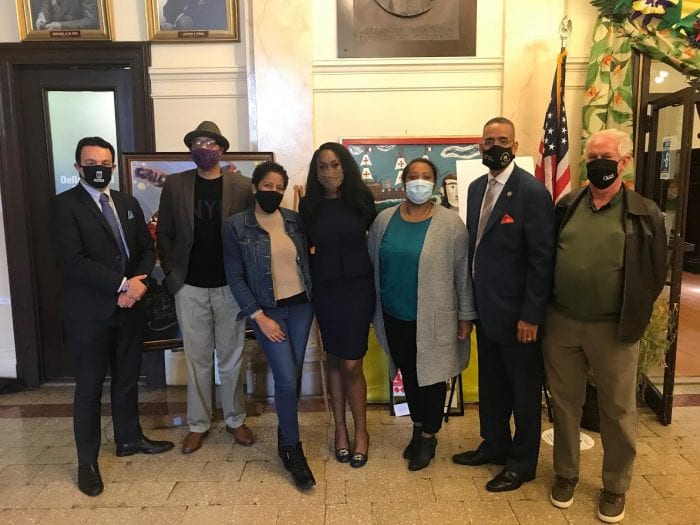By Daniel Dunaief
The daughter of Nigerian immigrants, Ijeoma Opara was born in Jersey City, New Jersey. Her first name means “safe journey” in Igbo, the language of Nigeria, and is something people say when they wish each other a good trip.
For Opara, her first name has proven prophetic, as this social worker is determined to help youth in Paterson make a safe journey through the challenges of substance abuse and mental health issues.
Recently, Opara became the first social worker to receive a $1.84 million Early Independence Award from the National Institutes of Health.
Apart from her unusual scientific background in a field dominated by award recipients who work in the natural sciences, like biochemistry and physics, Opara also stands out for her background.

“At the National Institutes of Health, there’s been a lot of discussion about how black scientists don’t get as much funding as [their] white counterparts,” Opara said. Black scientists don’t often receive early competitive grants.
Michelle Ballan, Associate Dean for Research in the School of Social Welfare at Stony Brook University, recruited Opara. She appreciated Opara’s “grit and tenacity.”
Ballan encouraged Opara to apply for the Early Intervention Award. With Ballan in her corner, Opara put that determination to work.
Ballan described how readily Opara responded to guidance.
“She not only accepted constructive feedback, she built upon it,” Ballan said.
When Opara applied for the award, she suspected she had little chance of receiving it. “Someone like me, who went to a state school in Montclair, New Jersey” writing about urban, black and hispanic youth has never receiving this kind of funding support, she said.
Opara received a score in March that she didn’t understand. She sent her score to her two mentors, Ballan and director of the REIDS program at Yale Dr. Trace Kershaw, and asked what it meant. Dr. Kershaw said it was almost a perfect score and told her she would likely receive the grant.
In July, she received an email congratulating her on her selection.
“I started screaming,” Opara said. She told her close friends and colleagues, but she couldn’t share the news on social media until the NIH press release came out in October.
She was so excited about the opportunity that she celebrated with a large order of food and ate herself into oblivion that first weekend. Her indulgent feast included Oreo cheesecake from The Cheesecake Factory and chicken and waffles from her favorite brunch place.
“I got so sick,” Opara laughed.
While Opara was thrilled that the award came, she felt another emotion mixed in with her elation. She said part of her felt guilty because she and other black researchers would like to see more representation in these awards and grant mechanisms.
Opara has appreciated the support she has received from other scientists.
“So many black colleagues, even people I didn’t know, saw this as a win not just for me but for all of us,” Opara said. Other graduate students and postdocs have reached out to her since the press release came out, asking for advice on applying for high reward and high risk awards and other NIH grants.
Opara is grateful for the confidence and support from Ballan.
Indeed, Ballan believes Opara is a “role model for all women, especially women of color in research intensive fields.”
When Opara interviewed at Stony Brook, Ballan told her that she “wanted to make sure you are very successful.”
Even early in her tenure at Stony Brook, which will start with extensive work in Paterson, New Jersey, Opara feels Ballan has “lived up to that promise.”






